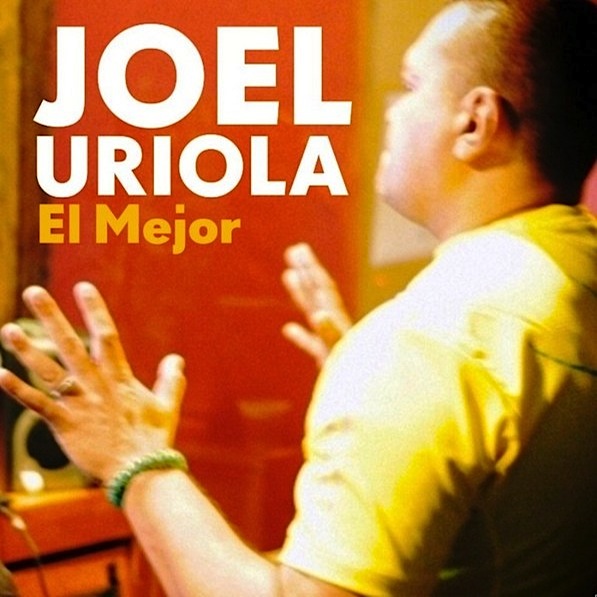|
|
|
Cyprus
|
Salsa Jam In Cyprus
Sep 21 2023 – Sep 25 2023 The Olive Tree HotelInonu Caddesi, Kyrenia, Cyprus, 8099 DescriptionThe 16th edition of Salsa Jam In Cyprus includes workshops for all levels, shows & non-stop parties with international performers, instructors and djs. Cost from € 70 |
| Georgia
|
Tbilisi International Dance Festival
Sep 22 2023 – Sep 24 2023 https://www.facebook.com/events/764132295441860 Caliente SDF Dance Studio61 Agmashenebeli Ave, Tbilisi, Georgia DescriptionThe 5th edition of Tbilisi International Dance Festival offers master classes by leading specialists from many countries & dance parties for 3 nights (Bachata, Cha Cha, Reggaeton, Salsa, Semba) Cost: N.A |
| India
|
ConRi Sensual Aura
Park Regis Goa HotelSaqwadi, Arpora, Bardez, Goa, India DescriptionThe second edition of ConRi Sensual Aura offers workshops, shows, socials & parties with local & Bachata, Kizomba international instructors, performers & Dj’s playing: York & Snakes Cost: N.A |
| Israel
|
Caramelo Festival
Sep 07 2023 – Sep 10 2023 https://en.caramelo.co.il/ Leonardo Club EilatKampen St, Eila, Israel DescriptionCaramelo Festival offers Bachata, Salsa, Brazilian Zouk shows, workshops and parties with international & local instructors, performers & Dj’s playing: Alejandro, Paco, Matias & Charlie. Cost: N.A |
| Japan
|
Japan Bachata Festival
Sep 22 2023 – Sep 24 2023 https://www.facebook.com/events/3576655205900497 Hotel LungwoodHigashi Nippori 5-50-5 B2F, Arakawa City Tokyo, Japan, 116-0014 DescriptionThe 11th edition of Japan Bachata Festival offers parties, workshops, performances, competition with national and international instructors, performers and dj’s. Cost: Full Pass: ¥15,000 |
| South Korea
|
Seoul Kizomba Competition
Sep 14 2023 – Sep 16 2023 https://www.facebook.com/events/872624597087640 Kyungsunghall30, Sinchon-ro 16-gil, Mapo-gu, Seoul, South Korea DescriptionThe 4th edition of Seoul Kizomba Competition offers 13 hours of workshops, 3 night of parties and competitions with international performers, instructors and dj Blvck Skyle Cost: Full Pass: €198 |
Latin America / Venezuela / Caracas
Did you know that in Venezuela the basic traditional Salsa is known as “Salsa Cero”, where the only thing anyone needs is “Not knowing how to dance”, knowing the basic steps of salsa, hearing and feeling the rhythm of the music and the musicalization.
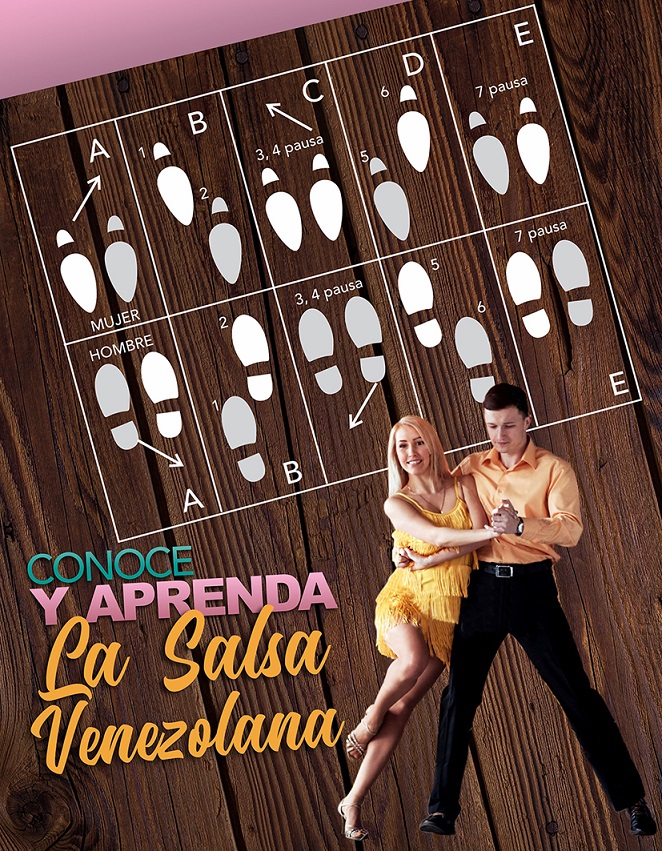
The basic steps of the sauce are:

| a. Return of the woman/man.
b. Back in Croos. c. Return of the man. d. Right left. |
e. The butterfly.
f. The Bridge. g. The 70. h. Sixty. |
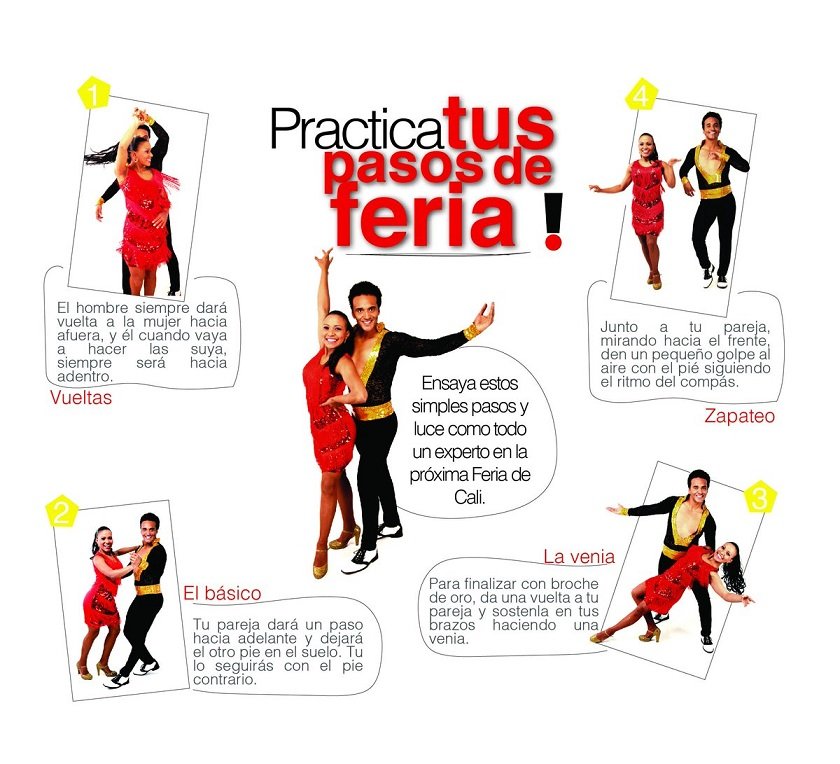
Did you know that Salsa Cero is not just for learning to dance?
Many people who practice or learn “Salsa Casino” take the workshop and/or zero salsa classes to learn to “count” the music that is being danced since musical counting is the fundamental basis of any dance.
One of the characteristics of this rhythm is the corporal expression, since there are details or corporal messages that make the couple understand how to move or what turn they are going to perform and these details can be known with the look, position of the hands and the body. before and during the return to perform. These details are very important especially in the man who is the one who controls and/or manipulates the woman so that she dances to the beat.
Among the different styles of salsa, Venezuelan salsa has a very special and interesting detail and that is that it is a very sensual style, in which the dancers make thousands of turns and constantly hug each other, showing their potential, emotion and feelings at the moment.

Latino America / Puerto Rico / Carolina
“It is salsa from yesterday and today for the dancer and the romantic salsero”.
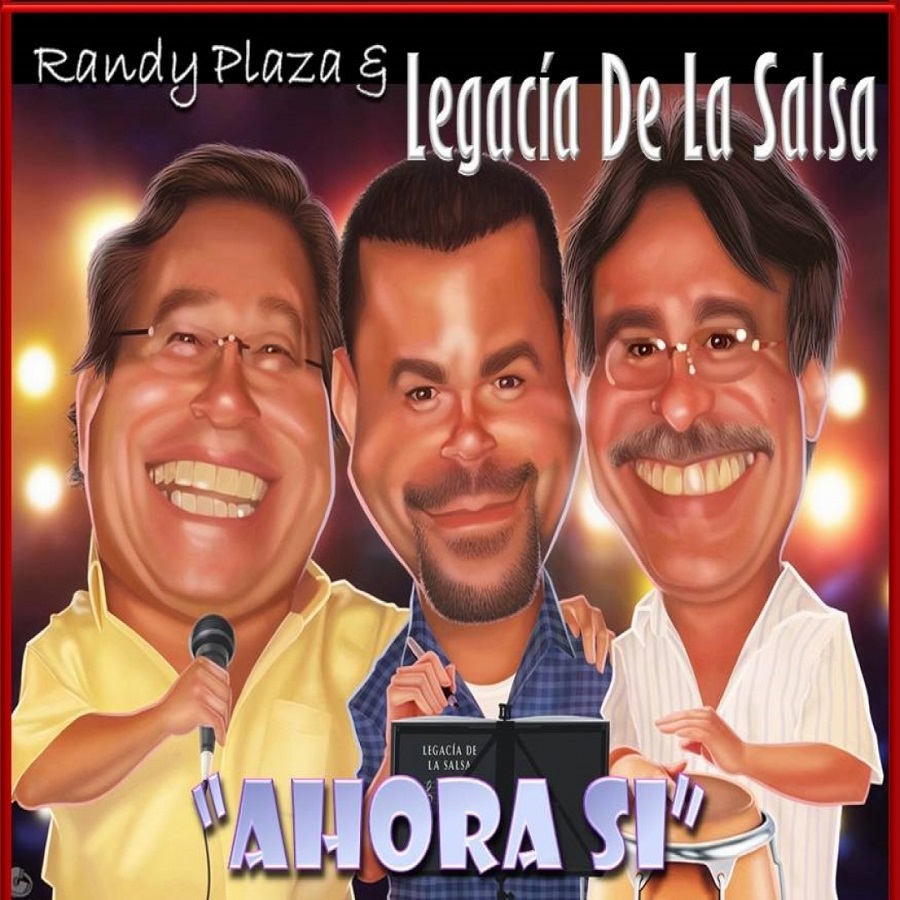
Randy Plaza, a native of Carolina, Puerto Rico, is the producer, composer, publisher and independent label of Legacía de la Salsa. Created in 2007, LS arises under a constant concern of seeing and feeling how the salsa genre has been musically devalued over the years.
Legacy of Salsa is an invention, a concept, a movement, an experiment, which tries firstly to raise the musical quality of salsa to another level, to keep the tradition alive, to demonstrate that if we work together and without interest, everything can be achieved. and proclaim to everyone that the sauce is not over.
That it is not in extinction, that it has not gone out of fashion, nor has it lost its style.
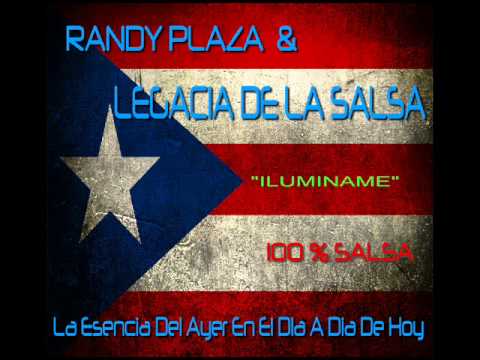
“That all these are tales of the boring.”
Legacy of Salsa is the legacy and teaching received from the great masters of salsa, who have captivated us in various ways and to whom we owe everything that was the development and fusion of this genre to the point of establishing it as a root in the heart of every Latino.
“It is salsa from yesterday and today for the dancer and the romantic salsero”.
Legacy of Salsa manages to incorporate the feeling of some of the greatest salsa institutions in this project, whether it be for the musical sound, for the style, for the arrangements, for the romantic, the singers, etc.
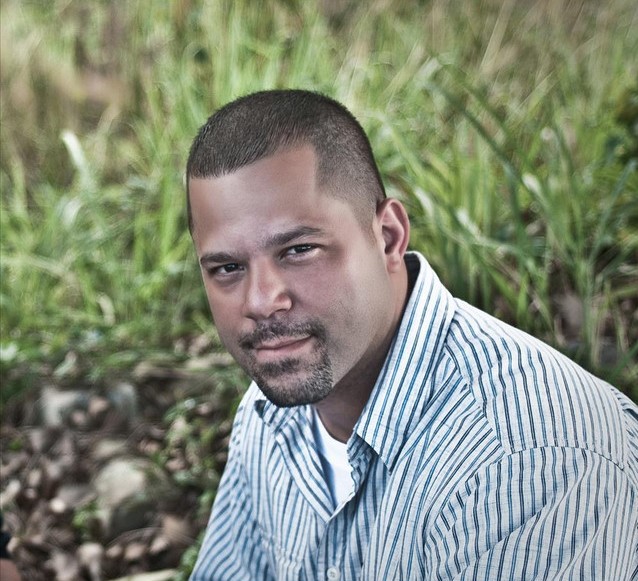
In this way we can recover a little of what has been lost today, please the entire salsa market, and fill that empty space; orphan of style and rhythm, and musically instructing and educating the disoriented and those who got lost along the way.
“The essence of yesterday in today’s day, traditional sauce without monotony and without fillers. For you salsero, cocolo, rumbero, with flavor and feeling”.
The unexpected, unfortunate and tragic death of Humberto Gómez leaves a huge void in the formation of Legacía de la Salsa.
A week before leaving Tito Gómez was already part of this musical concept.
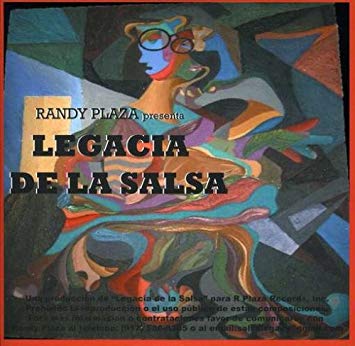
Due to such loss, it was decided to cancel the first Legacía de la Salsa concert in New York City on July 21, 2007, where he would have participated as a guest star.
At that moment we entered the recording studio insecure and with the enormous concern of wanting to do the best possible on his behalf, never forgetting the person he was and will continue to be for us and without leaving aside his musical legacy.
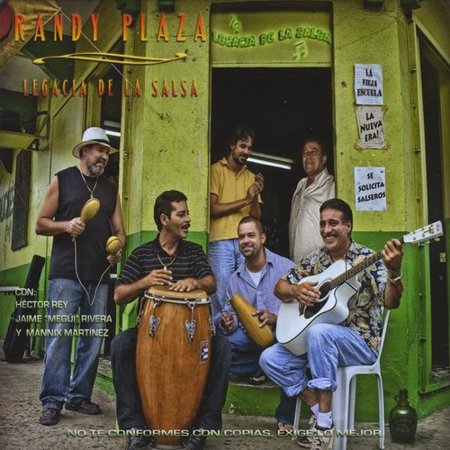
Latino America / Venezuela / Caracas
Very soon the theme will be released, Cuidadillo there ok
This Venezuelan pianist, arranger and musical producer was born on January 4, 1963 in Caracas, in the popular parish of Antímano, the same one that saw the birth of Sonero del Mundo Oscar D´ León, by chance or his destiny was already written and en route. towards a dream that over the years would come true; be the best and that your work is recognized both nationally and internationally.
In our gathering, Joel tells us that when he is classified as the best, he has nothing to do with competing with others or with airs of greatness, but with surpassing himself in everything he proposes, he tells us that “my path is longer, but I came as Joel Uriola”, his name is a seal that ensures quality work.
With 38 years of musical career, Joel Uriola has plenty of talent, level and experience, in each production he uses the best group of Venezuelan musicians and continues to be at the forefront of music, all this is demonstrated in the more than 1000 musical productions in which he has participated as a performer, director or musical producer, with national and international artists.
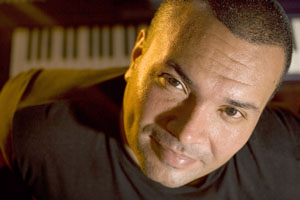
Joel Uriola The best?
“That’s right, metaphysics says that you can’t talk about yourself in a negative way, you can’t sell a product if you don’t have good marketing, you must see beyond, be your own manager, most record companies are in the hands of ignorant people. the music that drive the artist’s work”. “Artists have the obligation to cultivate themselves, learn and not only be musicians, we must project ourselves in a big way”.
How did your childhood develop and what was the atmosphere of the time like?
“I had a good education in my home, with values, a grandmother with character, who told me that no matter where you lived, your behavior would make a difference, she always motivated me, just like my mother who also instilled in me to prepare myself, my grandmother was an enterprising woman, my father was a rumba guitarist and a professor at the Católica”. “I remember that I saw the debut of the Trabuco Venezolano in the CC Propatria, as fate would have it, my mother had an office there, as did the people of the Latin Dimension.”
At what age did you start in music and with which orchestras did you take your first steps?
“My musical beginnings took place at the “Prudencio Esáa” School of Music, starting professionally at the age of 17 with a group called Galaxia, I was the conga player, it was a Son group and we rehearsed at the observatory”. “Then I became part of the Caracuchos of Joseito Rodríguez from 1977 to 1979, whom I met thanks to Jesús “Totin” Rebolledo, later with the Latin Dimension from 1979 to 1980, from Cesar Monges I learned a great deal, and from 83 to 87 with Oscar D´ León.
And why is there that change from the conga to the piano?
“Due to the noise I made in the house when I was rehearsing and the equipment turned on at full volume, my mother subliminally gave me an organ, it was less noise, and then I began to imitate what the pianists did in a self-taught way, I remember the theme of Pete Rodríguez… What things life has, life, life”. “Then my mother bought me a piano and took me to audition at the School of Music and I stayed, I was a student of teacher Tiero Pezzuti, Gerry Well and Samuel del Real”. “In the nightclubs of El Rosal I did many substitutions, there I polished myself, I had a good preparation and some great teachers who are my friends”.
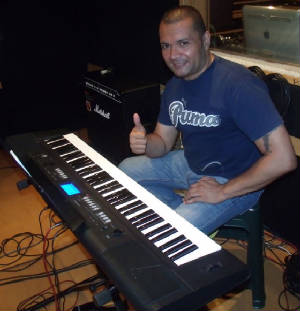
What anecdotes do you have about your experience of working alongside Oscar D´ León, and about that piano solo on the song “Cuídate bien”, did you ever think that being so young, almost 20 years old, your name would remain forever on the mind of the salsero?
“The time with Oscar was glorious, I got to know many places, we toured for 3 and 4 months, we enjoyed ourselves but we also had a lot of fun, I learned a great deal and disciplined.” “I had the blessing of meeting many musicians that I admired such as Eddie Palmieri, Salvador Cuevas, Barry Rogers, among others, with Domingo Quiñones I made a great friendship.” “As for improvisation, I feel great pride, it was something that came out at that time, I don’t know if it will come out again -laughs-“.
Which musician has been your biggest influence?
Markolino Diamond, Eddie Palmieri, Papo Lucca.
A pianist you admire?
“Markolino Diamond is my idol, a lot of what I do has to do with this guy, if he were alive he wouldn’t exist…”. “He was irreverent, crazy, he broke the schemes.”
How do you see the response of the salsa audience with your productions?
“There will always be admirers and detractors, with the level of awareness that you gain, it doesn’t bother you that there are people who don’t like your work, I make music for everyone”. “Public opinion can kill you if you are not prepared for it, but you must believe in what you do.”
How do you see the support of the media to spread your music?
“Thank God the record companies disappeared, those who knew the least about music controlled them, they decided that it was commercial and that it was not, in the alternative media there is response and support, however, social networks allow you to reach in a matter of seconds many places and you can do your own marketing”.
What do you think about the fusions that you are doing with salsa, for example, salsa and reggaeton?
“It works perfectly, it’s urban salsa, reggaeton with its lyrical content has improved a lot, they’ve softened it, reggaeton artists have great economic and communication support.” “The good things are guaranteed, reggaeton is seen as Salsa was seen in its beginnings, with bad eyes, but you see, Salsa is worldwide even the Chinese dance it, people consume what the radio puts on it, even if it’s bad, there’s room for everyone”.

As a music teacher, what have you contributed to the country?
“Train the next generation, in values and discipline, and that seed continues to germinate, help people regardless of how they sometimes pay you.”
Why musician and not another profession?
“I wanted to be Disip (Venezuela’s intelligence corps), but when one is born marked for something, that’s what goes… My destiny is music.”
How do you see the music industry right now?
“Everyone is recording with their own effort, you make a song, you upload it to the networks, we have that powerful tool in our favor; the record companies limited you, hardly any albums are recorded anymore”.
Can you live from music?
“Well… Thank God I can do it, every day I get up like a conuquero to work, I can live from music.”
Of the 9 productions under your belt, which do you think is the best or the most important for you?
“Babalawo (2009), the best achieved, the best worked in all aspects, was sold in all religious houses.”
What motivated you to form your own orchestra?
“I’ve always been a leader, that’s why I decided to form my own orchestra, everyone has their moment”.
Isn’t it a difficult job to compose and arrange?
“You are born for this, it is not difficult, you must study and prepare yourself, my muse can arrive at 3 a.m., I get up and add or season my music in my own way, I listen to traditional Cuban music, jazz that inspire me.”
What is Joel Uriola doing right now?
“Currently I dedicate myself to producing for other artists of the Salsero genre, always offering quality, the most recent is the work with the Mercadonegro Orchestra with the theme Rumba Negrito”.
You are the arranger of the 3 songs that made the Bailatino orchestra known internationally, you have been the Producer and arranger in five songs of “Rumberos del callejón”, among other Venezuelan artists. What does it feel like to contribute so that other Venezuelans are successful?
“At the moment you do things, you do it with the best intention, and that is the greatest satisfaction, helping others grow regardless of how they pay.”
Do you feel that unity and camaraderie are lacking in the salsa guild?
“Totally, without unity nothing is achieved.”
What do you think of copying, imitating and not creating?
“He who imitates is destined to fail, one must have personality, you must not cling to something foreign to survive, what you do has more value, you must have creative capacity”.
Future plans or present?
“I am recording two songs, Cuidadillo there ok composition by Maurice Melo, a salsa with tasty rhythmic elements, timba and hard sauce, and the second song You are the teacher has a Christian connotation, with the Praise Orchestra, the song is my own. , a cool sauce with Christian sauce”.
Joel reaffirms us “My road is long, but I arrive as Joel Uriola, I am who I am, I am the best”.
